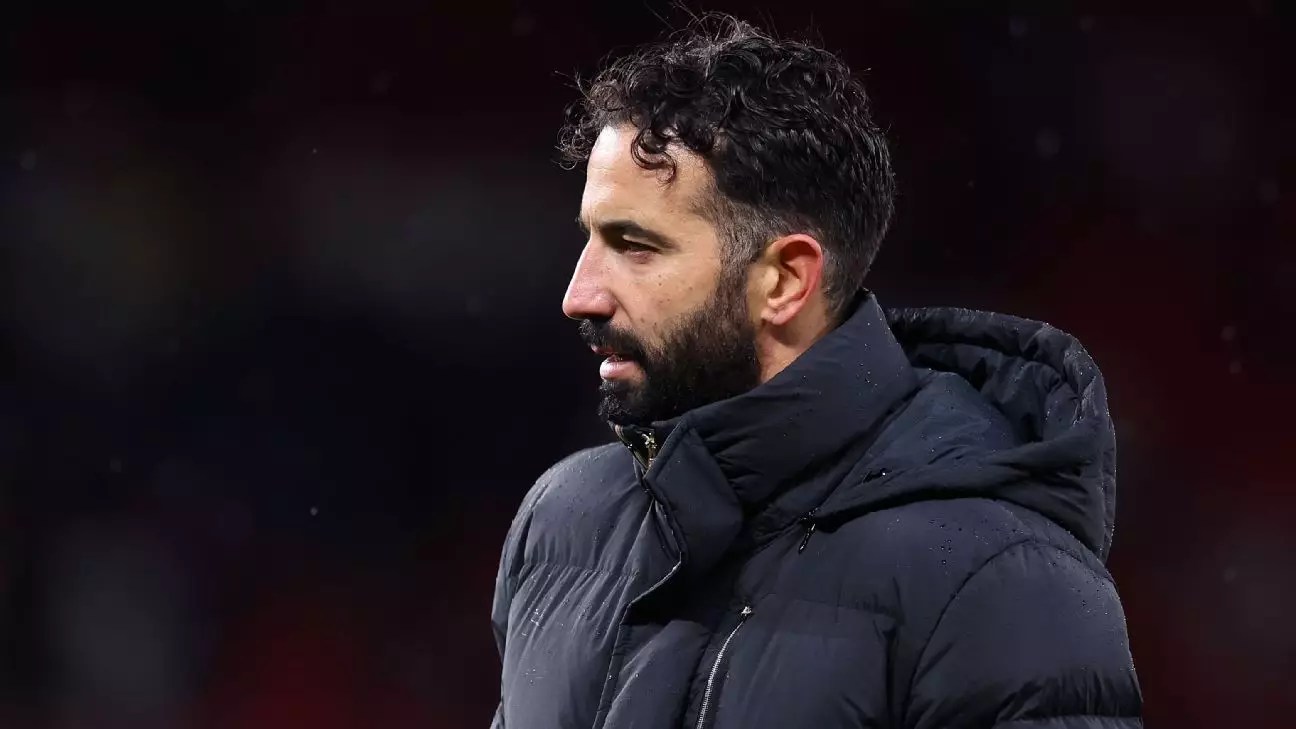In the realm of sports, certain losses resonate more profoundly than others. For Manchester United, the recent 3-2 setback against Nottingham Forest at Old Trafford is a bitter pill to swallow, not merely due to the defeat itself but because of the glaring deficiencies it highlighted in the squad. Head coach Ruben Amorim, still fresh in his role, is faced with an uphill battle as he navigates the complex environment of one of the sport’s most storied clubs.
While it was perhaps expected that United would struggle against Arsenal, a club that appears to be on a different trajectory, the loss to Forest, which had been floundering in the EFL Championship until recently, raises serious questions about the team’s current trajectory. The very fact that Forest left Manchester with their first win at Old Trafford in three decades underscores the depth of the malaise affecting United. Co-owner Sir Jim Ratcliffe’s comments claiming the club has slipped into mediocrity resonates starkly with the reality of the pitch.
One of the most alarming aspects of United’s performance was the defensive frailties exposed throughout the match. The opening goal, a result of Lisandro Martínez’s inability to contest a header from a corner, set a tone of insecurity that plagued the squad. Such fundamental mistakes illustrate a broader concern: tactical implementation fades into insignificance when the players routinely fail to execute basic principles of defending.
To compound the issue, two further blunders within a short span of the second half accentuated the need for urgency within the squad. An errant flick from Bruno Fernandes resulted in a goal that was avoidable had there been greater focus in execution. Similarly, Andre Onana’s continued struggle with shot-stopping abilities, marked by his failure to react adequately, casts a shadow over his position in goal. United is unable to afford such lapses at this level, and the aggregate of errors not only reflects poorly on individual players but leads to a broader loss of confidence within the squad.
Amorim’s emotional response to the loss was palpable; keenly aware of the stakes in a massive club where expectations are invariably high, he expressed an understanding of the despair hanging over the supporters. “You feel it when you lose one game; it’s really hard for everybody,” he noted. The emotional aspect of football cannot be overstated, as morale significantly influences performance. As the players returned from the pitch following another disappointing outing, the sense of disbelief lingered — not merely from the poor execution but from the weight of knowing they had let down not just themselves, but also generations of fans.
His words also alluded to the necessity for resilience and persistence in the face of adversity, emphasizing the critical need for the squad to focus on performance over immediate results. However, maintaining such a mindset is challenging when the team faces another high-stakes week, featuring a UEFA Europa League matchup followed by a high-profile clash against Manchester City.
Amidst the turmoil, Amorim remains hopeful. Drawing parallels to his earlier experience managing Sporting Lisbon, he conveyed a sense of calm under pressure. Adversity is an inevitable part of football, and before success can be achieved, teams often must endure growing pains. He has stressed the importance of time and consistency in improving the club’s fortunes, though such patience might wear thin among fans who expect immediate results.
However, as the season progresses and United lingers near the relegation zone with a miserly points tally, the urgency to effect change becomes palpable. Fixtures against formidable opponents, including Tottenham Hotspur and Liverpool, present a minefield for a team already struggling with confidence. Each match represents a critical opportunity for Amorim to showcase his vision and tactical acumen, yet the ever-present threat of deeply ingrained mental barriers complicates matters further.
Ultimately, Amorim’s task to revive Manchester United has never been more daunting. What once was viewed as a coaching appointment with promise is now marred by the grim reality of underperformance and management challenges. As the club plunges deeper into crisis, every fixture becomes a watershed moment. The road ahead will undoubtedly be fraught with challenges, requiring not only tactical ingenuity but also an ability to inspire and unify a beleaguered team — a task that is undeniably herculean. The question remains: can Amorim rise to the occasion, or will the weight of expectations prove to be too much? Only time will tell.


Leave a Reply